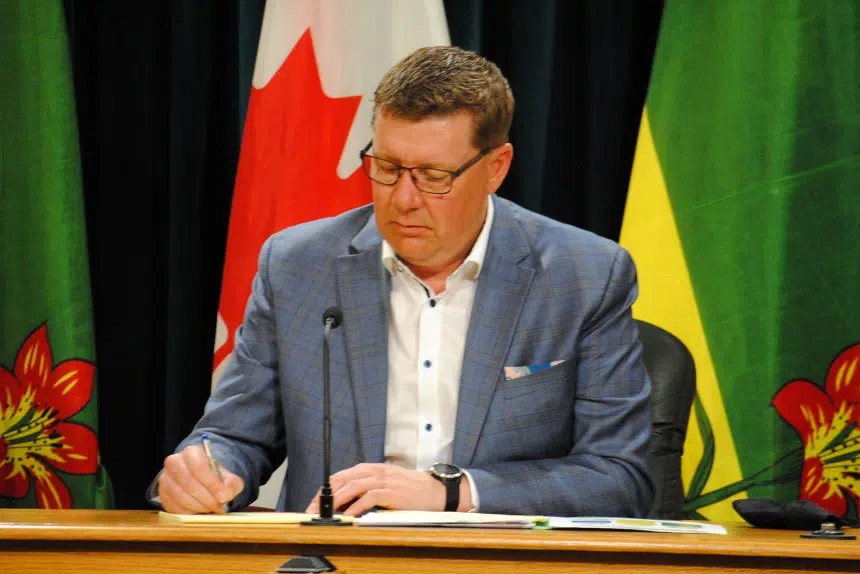Premier Scott Moe says Saskatchewan has heard from the federal government about potentially helping out as the fourth wave of COVID-19 grips the province.
But Moe told Gormley on Monday the provincial government has yet to ask the feds for assistance in terms of staffing health-care facilities or funding.
“Now, that’s not to say that we won’t have discussions about that this week or as we move forward if we’re not able to find a peak in our hospitalization numbers,” Moe said.
“(From) Sept. 1 relative to Sept. 26, we’re just over doubled both in our ICU and in our general hospitalization of COVID patients alone, so the pressure is very real. The pressure is quite extreme. And so I wouldn’t discount that request at some point in the future if we’re not able to find a peak and start finding our way down the backside of this fourth wave.”
Alberta, which also is in the midst of a fourth wave, has asked for federal assistance.
On Sunday, Saskatchewan reported 552 new cases of COVID and 4,864 active cases — both all-time highs since the pandemic started in March of 2020.
There also were 281 COVID patients in Saskatchewan hospitals, including 63 in intensive care units. On Sept. 1, those numbers stood at 134 and 30, respectively.
On Friday, federal Health Minister Patty Hajdu tweeted that she had spoken to Saskatchewan Health Minister Paul Merriman and had offered whatever federal help was required.
I spoke with @MerrimanPaul today, and ensured he knows that the federal government will be there to help the people of Saskatchewan in this health crisis. We stand ready to help wherever we are needed.
— Patty Hajdu (@PattyHajdu) September 24, 2021
On Monday, Moe said his government has been working with the feds to try to increase vaccine uptake in certain areas of the province and to improve access to rapid tests people can give themselves.
“There’s another area where we’re working quite closely with the federal government as well and this is on some of the early intervention treatments that might be available — the monoclonal treatments, for example, that the U.S. is using …,” Moe said.
“But those are expensive and they are also not a replacement for a vaccination in any way.”
Saskatchewan has one of the lowest COVID vaccination rates in Canada, but there has been an increase in recent weeks.
Since the provincial government announced it would be launching a proof-of-vaccination policy — and since it announced employees of all government ministries and Crown corporations would need to get vaccinated — the number of shots going into arms has increased.
“We hit 80 per cent (of eligible residents getting) first doses, which does provide some protection, and 72 per cent of our eligible people are at the second those,” Moe said. “We need to push that along even further …
“Over 80 per cent of the people in our ICUs are unvaccinated and they’re coming from 30 per cent of the population. Just do the simple math on that: You’re five or six times more likely to end up in ICU if you’re not vaccinated. If you don’t believe in science, that’s the math.”
The Saskatchewan Health Authority also has made changes to the health-care system to address the strain it’s under, from postponing some services to cancelling organ donation. Staff are being moved from some areas to units where they’ll be dealing solely with COVID patients.
“At the end of the day, unvaccinated people are what are overloading our ICU department and our health-care system,” Moe said. “There’s no easy answers on how we we lessen that, aside from as many people as possible going out and getting vaccinated even yet at this late date.”







